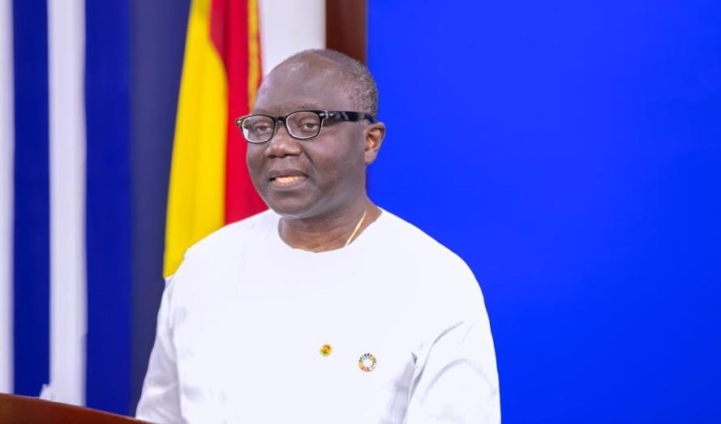Ghana is expected to reach a moderate risk of debt distress by 2028, the International Monetary Fund has disclosed in its Staff Report on Ghana.
It pointed out that the bulk of the domestic debt restructuring process has however been completed.
“The combination of the authorities’ [government] debt restructuring strategy and reforms under the programme is expected to deliver debt sustainability as it eliminates all threshold breaches under the Lower-Income Countries - Debt Sustainability Framework (LIC-DSF) by 2028 and restores a moderate risk of debt distress”, it mentioned.
According to the Fund, this also means that the programme is fully financed during the first 12 months with good prospects for the remainder of the programme.
Ghana suspended external debt payments to official bilateral and external commercial creditors since December 2022 and has, therefore, been accumulating arrears to these creditors.
This is because of its debt distress position.
The IMF therefore expects the financing assurances to be provided under the Common Framework to be adequately representative, allowing for arrears to other official bilateral creditors to be deemed away under the Lending into Official Arrears (LIOA) Policy.
As required under the Fund’s Lending into Arrears (LIA) policy, the IMF staff assesses that the authorities are making good faith efforts to reach a collaborative restructuring agreement through engagement in early dialogue, timely sharing of information and giving opportunity for creditors to input on the restructuring strategy.
Again, appropriate policies and prompt Fund support are essential for the successful implementation of Ghana’s adjustment programme.
Ghana’s debt fell ¢141.1bn to ¢434.6bn in December 2022 – BoG
Ghana’s public debt stock fell by ¢141.1 billion in December 2022 to end the year at ¢434.6 billion, approximately 71.2% of the Gross Domestic Product, data from the Bank of Ghana has revealed.
This was equivalent to $52 billion.
According to the May 2023 Summary of Economic and Financial Data, Ghana’s debt in cedi term rose consistently to ¢575.7 billion ($43.9 billion) at the end of November 2022, about 93.5% of GDP.
This came after the country successfully completed its debt exchange, paving the way for the Executive Board of the International Monetary Fund to approve a $3 billion Extended Credit Facility (ECF) programme.
Latest Stories
-
We’ll cut down imports and boost consumption of local rice and other products – Mahama
40 mins -
Prof Opoku-Agyemang donates to Tamale orphanage to mark her birthday
2 hours -
Don’t call re-painted old schools brand new infrastructure – Prof Opoku-Agyemang tells gov’t
2 hours -
Sunon Asogli plant will be back on stream in a few weeks – ECG
2 hours -
ECOWAS deploys observers for Dec. 7 election
3 hours -
73 officers commissioned into Ghana Armed Forces
3 hours -
Impending shutdown of three power plants won’t happen – ECG MD
3 hours -
Ghana shouldn’t have experienced any ‘dumsor’ after 2017 – IES Boss
4 hours -
Lamens flouted some food safety laws in re-bagging rice – Former FDA Boss Alhaji Hudu Mogtari
4 hours -
Afcon exit: Our issue is administrative failure and mismanagement, not lack of talent – Saddick Adams
4 hours -
WAPCo to commence major pipeline maintenance and inspection from November 25
5 hours -
CEO of Oro Oil Ghana Limited Maxwell Commey listed among the 100 Most Influential People Awards, 2024
5 hours -
Power crisis: Amandi is off due to maintenance, not debt – ECG Boss
5 hours -
Votes cast for late Akua Donkor to be declared invalid – Electoral Commission
5 hours -
You can’t keep “incompetent” Otto Addo for the long term – Countryman Songo
5 hours

